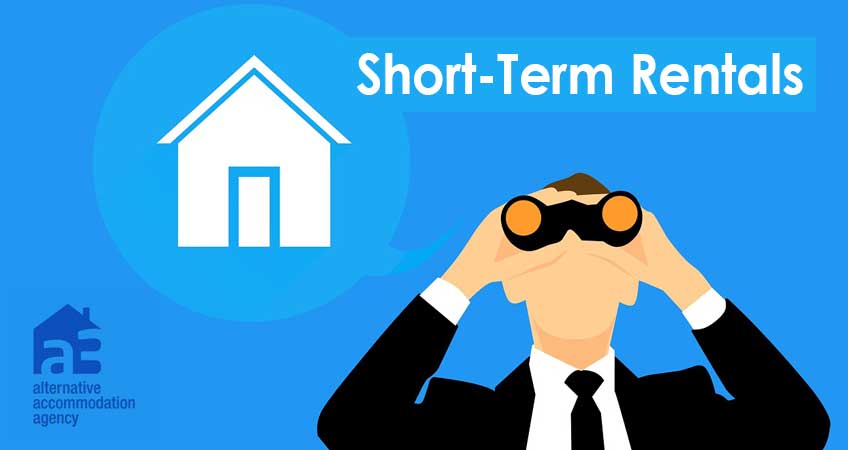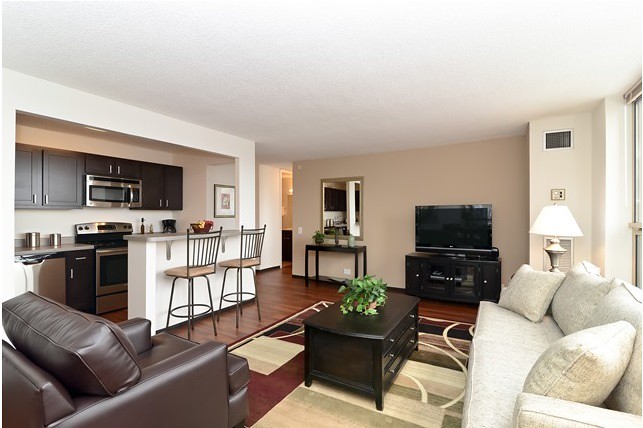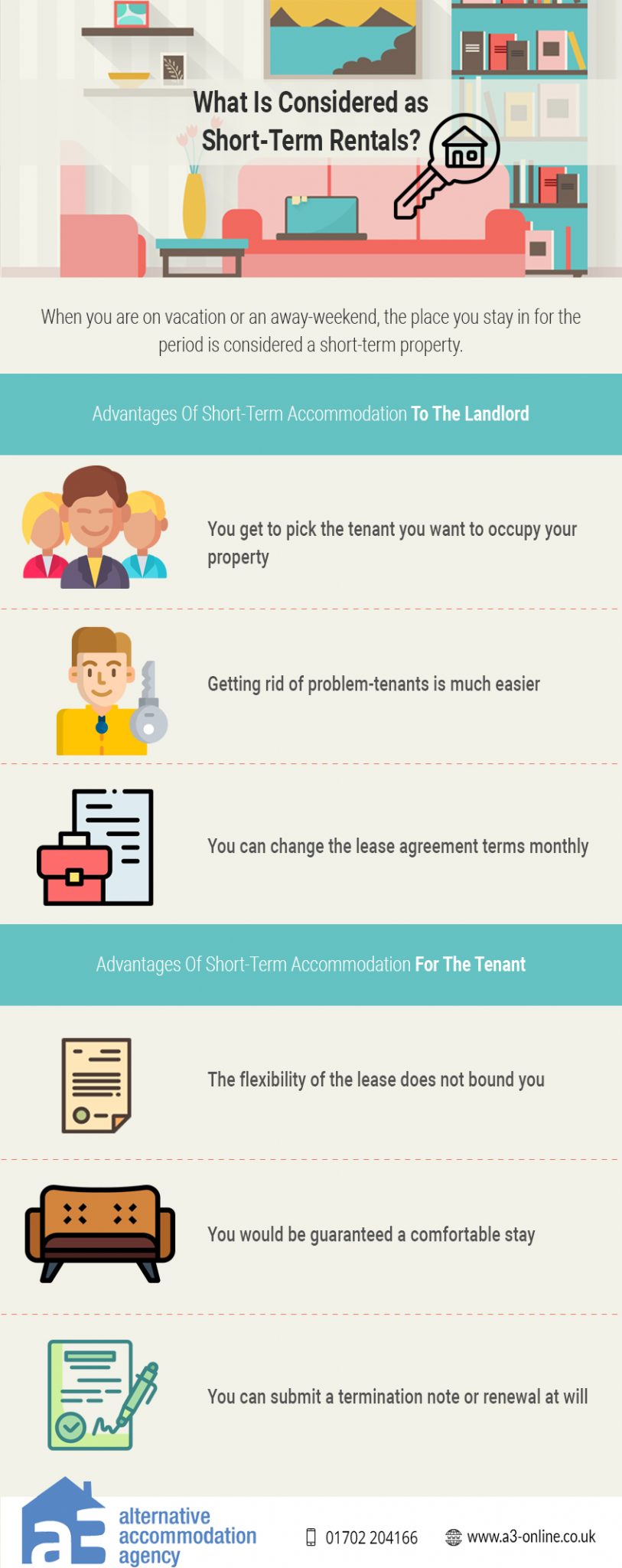
A rental property may either be short-term or long-term, depending on the timeframe. Both types of rentals have their advantages, disadvantages, similarities, and differences.
In this article, our focus would be on what is considered as short-term accommodation.
A short-term rental varies as far as the length of time that defines it. When you are on vacation or an away-weekend, the place you stay in for the period is considered a short-term property. This is because the time you would be spending is between a couple of weeks, to a few months.
Motels and hotels are not included in the scope of short term accommodation because you will be renting a room in them, and not the whole property. Short term accommodations are common in areas with low supply and high demand for accommodation.
Anything more than six months is no longer a short-term rental but now a long-term accommodation. Usually, the payments for this type of rental properties are made monthly.
If you are a landlord of a short-term rental property, then you are not bound by lengthy obligations that are usually included in contracts. You could also decide to increase the seasonal rents and charge higher rates at will.

Since your property has a high demand, you get to pick the tenant you want to occupy your property. With short-term properties, getting rid of problem-tenants is much easier because a 30-day notice can be issued rather than the tiring eviction process of long-term accommodations. You can change the lease agreement terms monthly but must inform the tenant of each change.
As the owner of a short-term property, you get to choose the time of the month your property will be up for rent. Short-term property landlords can enjoy big tax breaks. This is because they are not obliged to report all income to Her Majesty’s Revenue and Customs office (HMRC). When they do, they may deduct advertising and operating costs.
There could be a few months where no one will want to rent your property. The more tenants you rent the property to, the more wear and tear that they will cause to it. Since it is a short-term rental, you may not notice it until the tenants are long gone, and you will eventually pay for the damage.
If you are looking for a quick rental, then short-term accommodation is usually the quick fix. The flexibility of the lease does not bound you to anything you wouldn’t want. Many short-term properties are furnished so that you would be guaranteed a comfortable stay in them.
Just like the landlords of a short-term property, you can submit a termination note or renewal at will.
Landlords may incur high costs for their short-term properties, so you should expect to pay more for monthly leases than in short-term accommodations. Also, locating short-term properties is quite a task for tenants. The landlords of these properties may give a short notice that may leave the tenant stranded.
As a tenant, it is very challenging to negotiate the rental terms with the landlord because there are quite a number of others queueing up for space.
In conclusion, short-term accommodations are the perfect choice for tourists and people who need to renovate their old homes. One thing is certain in these properties; you will get all the comfort you need as they are well-furnished.
